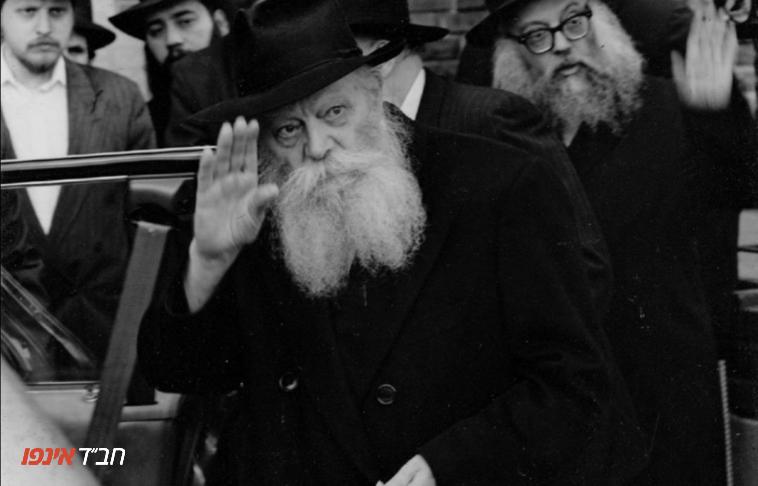It’s OK To Say “I Don’t Know”
On Chof Zayin Adar Rishon tuv shin nun beis, the Rebbe went to the tziyun, and in the middle, he fell. They called for “Hatzalah” and people came from various places. They brought the Rebbe to 770. I don’t know why they didn’t go to the hospital… • Transcribed from a conversation with Reb Zushe Posner a”h, by Beis Moshiach Magazine • Full Article
Transcribed from a conversation with Reb Zushe Posner a”h, by Beis Moshiach Magazine:
On Chof Zayin Adar Rishon tuv shin nun beis, the Rebbe went to the tziyun, and in the middle, he fell. They called for “Hatzalah” and people came from various places. They brought the Rebbe to 770. I don’t know why they didn’t go to the hospital.
I remember when I was in yeshiva, and I had to inform everyone on the 27th of Adar 5752 that something had happened, but I didn’t know exactly what. I used the example of a “fog of war,” where people don’t know what’s happening, they talk about all kinds of things and say all kinds of things. The Rebbe said, “B’rov shira v’zimra — With much singing and rejoicing,” but they don’t know exactly what’s going on.
The Rebbe wants to awaken us!
Chof Zayin Adar was the beginning of the Rebbe’s concealment from us, as the Rebbe stopped speaking with us since then.
The Rebbe wants to awaken us, and when that didn’t work, the event of Shmini Atzeres 5738 came, and the Rebbe went into his room – perhaps that would awaken us. But it didn’t help. Ten years passed – until 5748, and we still didn’t wake up. And then came the Chof Beis Shevat – the Rebbetzin was nistalek, but that didn’t help either, and then came Gimmel Tammuz 5754. And that didn’t help. It’s a horrendous situation!
What should we do? I don’t know. But the situation is problematic!
I had some yeshiva ketana students over, and I told them that it’s okay to say “I don’t know” because if you say “I don’t know” – it means that maybe the other person is also correct.
If people are already talking — we need to stop…
The problem is that we’re unable to say “I don’t know.” For me, Gimmel Tammuz is a problematic day. Because what exactly happened on Gimmel of Tammuz? If you want to talk to me according to halacha (Jewish law), according to the Shulchan Aruch, there’s no concept of “histalkus” — there’s only the matter of death…
So what happened on Gimmel Tammuz? I don’t know.
What should we do? I also don’t know. I didn’t push to be there and decide what to do, and therefroe, I don’t talk about what should have been done.
The Gemara in Bava Metzia (84b) tells the story of Rebi Elazar ben Rebi Shimon, who was buried in the attic for over 18 years [and settled disputes], and only when they started talking about it, were they forced to bury him. What does that mean for us? I don’t know…
We don’t eat hearts of animals, but the Rebbe Nishmaso Eden used to eat them. Once, when the shochet brought the hearts to the Rebbetzin, he remarked to her that customarily we don’t eat hearts.” She told this to the Rebbe, and he said, “If they are already talking about it – we need to stop.”
The same goes for what happened with Benedictine. Rumors began to circulate that it’s not kosher, etc., [and the Rebbe stopped using it] just because it wasn’t enough for people that it was on the Rebbe’s table.
More Knowledge, More Pain
Why do we care about not knowing? Because the moment I don’t know, I can’t criticize the other, I can’t hate the other, because I don’t know and maybe he is right?
I know that there is a Rebbe b’guf gashmi, in a physical body. What happened to him? I don’t know, and the fact that I don’t know doesn’t affect my faith in the slightest. I am not a Chabadnik who is required to find a rational explanation for everything that happens. It is my right not to know!
The reason I believe that the Rebbe is alive is not because there are explanations about the Moshiach being revealed and then hidden, but rather because I believe in the Rebbe. There cannot be a world without the Rebbe being alive in a physical body, because tzimtzum lav kipshuto. Everything else is irrelevant to me, because my knowledge does not affect my belief, so what do I need to know about everything around me?”
“Less smart – more true”
Rabbi Hillel Paritcher had a saying in Yiddish that goes (paraphrased): “I hate fools. But someone who is a bit less smart is closer to the truth.”
The smarter we are, the further we are from the truth, because the truth is not always comprehensible to our intellect. On the other hand, a person who is not smart from the outset does not rely on his ability to understand, and therefore is closer to the truth.
No one is saying to be fools; the saying starts with “I hate fools.” The meaning, however, is that not everywhere does intellect dictate, and we don’t always have to follow it. Therefore, there is no need to search for answers to everything and it is allowed to say “I don’t know.”
*
Beis Moshiach magazine can be obtained in stores around Crown Heights. To purchase a subscription, please go to: bmoshiach.org
644
Join ChabadInfo's News Roundup and alerts for the HOTTEST Chabad news and updates!









































